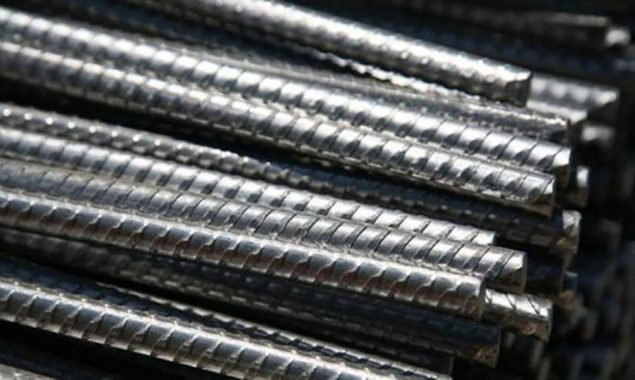Bank Alfalah Islamic, Grand City sign MoU to promote housing finance
KARACHI: The Bank Alfalah Islamic, Pakistan’s premier financial institution providing Shariah-compliant consumer...

Image Courtesy: File
KARACHI: The domestic rebar prices have increased Rs2,000/tonne on Wednesday night and are currently trading at Rs195,500/tonne to Rs197,500/tonne, taking the cumulative price increase during the ongoing quarter to around Rs18,000/tonne.
“The ongoing price increase is the result of uptick in [the] international scrap prices, rupee devaluation and high energy costs,” Ahmed Rauf at Sherman Securities said.
During the second quarter of FY22 to-date, local rebar prices have averaged at around Rs188,000/tonne, improving 12 per cent on a quarterly basis against Rs168,200/tonne in the first quarter of FY22.
To note, the international scrap prices, raw material for rebar, have on an average increased 3 per cent to $480/tonne during the second quarter, compared with $468/tonne in the preceding quarter.
Moreover, in addition to the rising international scrap prices, 5 per cent rupee depreciation has further enhanced the costs of the raw materials to around 8 per cent during the quarter so far.
Additionally, upward revision in the power tariff has also contributed to the rise in the cost of production as listed rebar players mostly rely on grid electricity, which contribute 45 per cent of the processing cost.
“For every Re1/kwh hike in [the] power tariff, [the] cost of rebar increases Rs800 to Rs900/tonne, we estimate,” Rauf said.
“Thus, we believe that most of the impact from higher cost has already been passed on, thanks to resilient demand.”
The number of steel units is over 400 factories, making steel rebars across Pakistan. Amreli Steels, Mughal Steel, Agha Steel and Abbas Steel account for 50 per cent of the overall local rebar production.
According to the National Steel Advisory Council (NCAC), the total domestic installed production capacity is currently estimated at 8.5 to 9 million tonnes/annum, including 1.1 million tonnes of PSM capacity, which has been offline since June 2015.
The capacity utilisation ratio of the industry, as a whole, is typically 75 per cent to 80 per cent. Despite the fact that the local manufacturing capacity of tubes, pipes and long products, including rebar, bar, wire rod and sections is sufficient to meet the domestic demand, over the last four years the import of tubes, pipes and long products has been fairly static.
Catch all the Business News, Breaking News Event and Latest News Updates on The BOL News
Download The BOL News App to get the Daily News Update & Follow us on Google News.